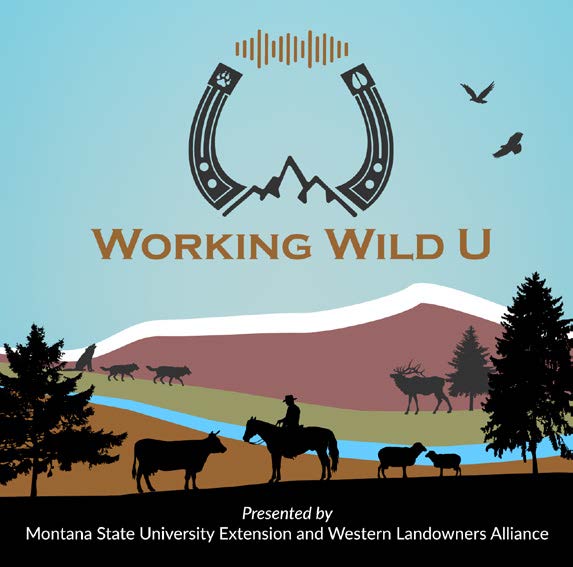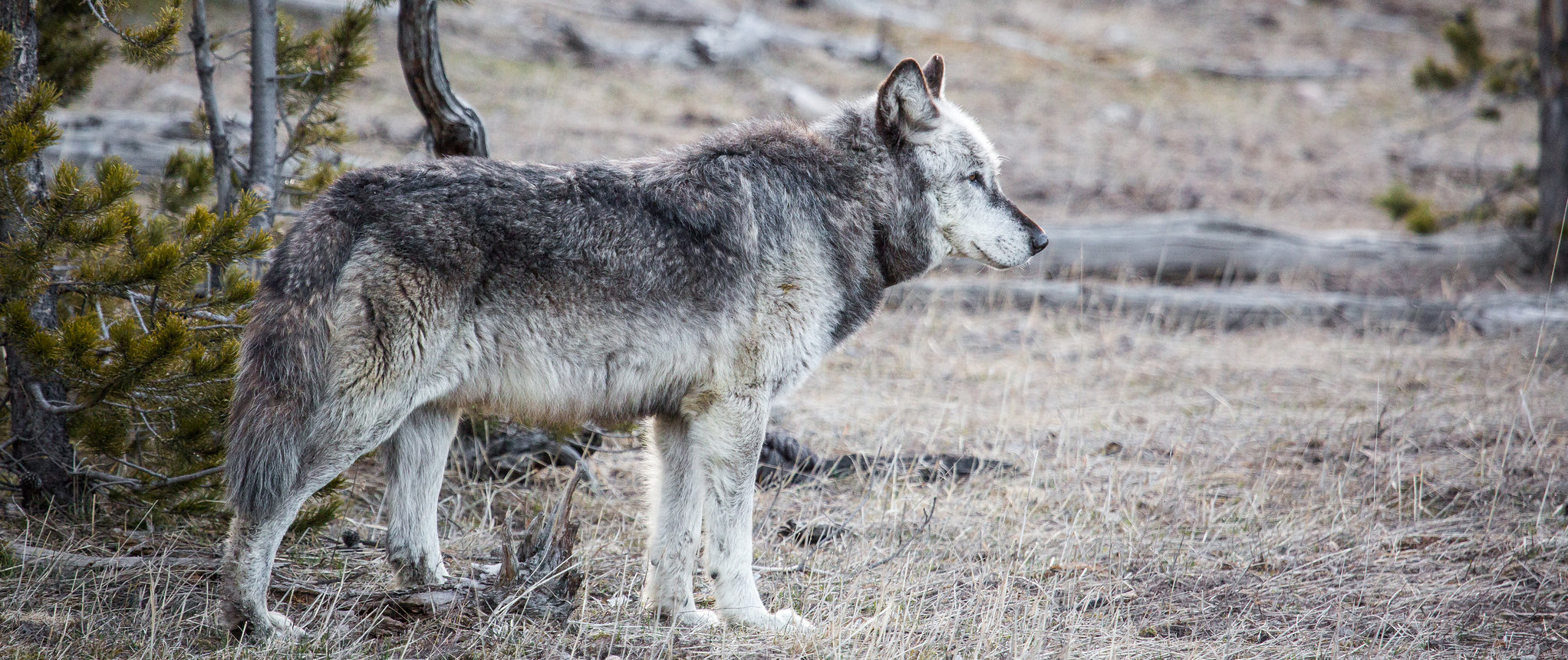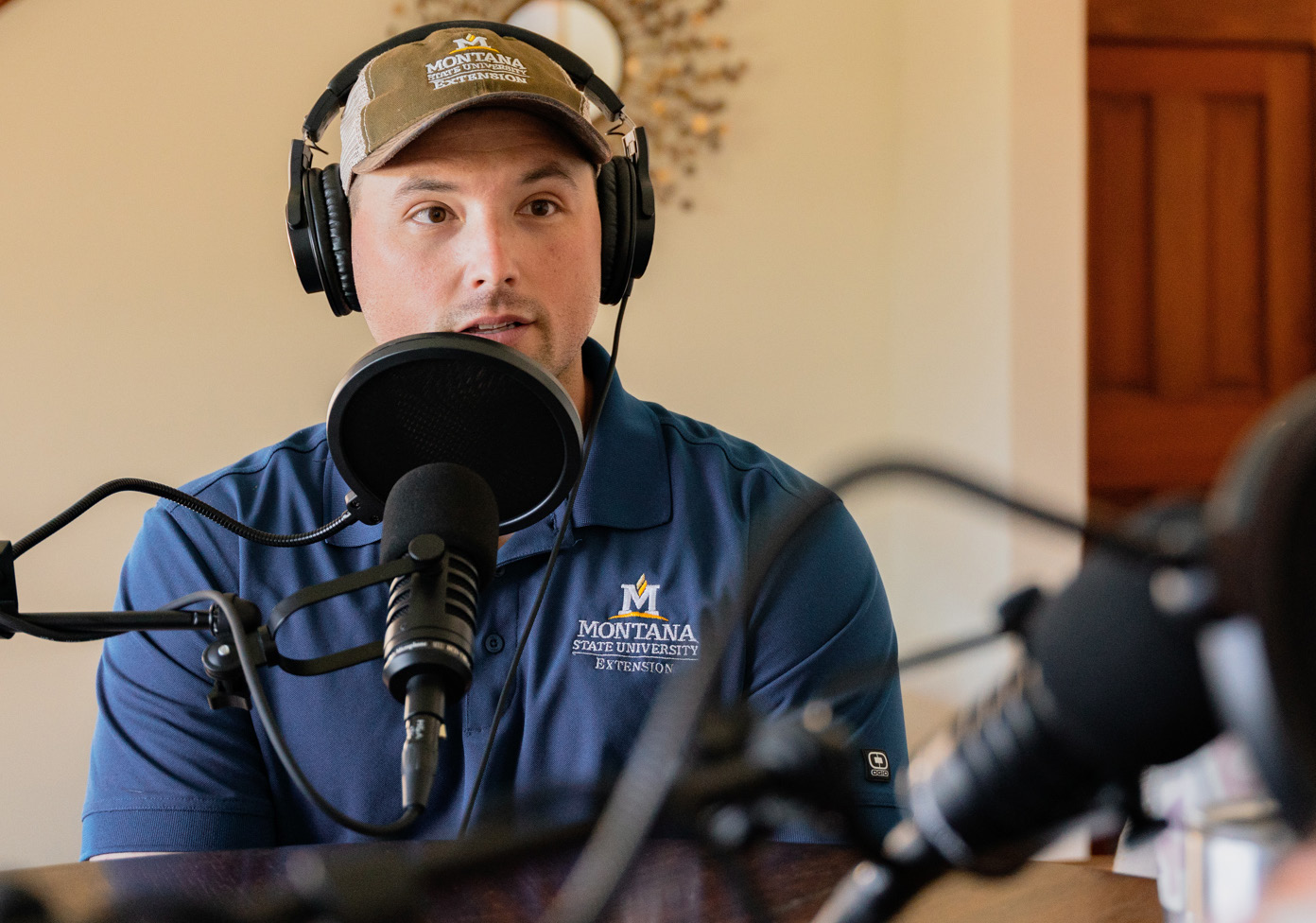Working Wild University Podcast

Conversations with scientists and landowners from the fields, forests and ranges of the West
The Working Wild University Podcast features interviews and commentary with scientists and landowners who explore the challenges and successes of working alongside wildlife. It digs deep into the big stories at the heart of the struggle to help sustain resilient and connected landscapes and communities.
In 2023, “Wolves in the West” was the topic of the inaugural season of ‘Working Wild U,’ which was down-loaded more than 45,000 times and earned a 4.9-star rating on Apple Podcasts. The podcast also won the Gold Award in media from the Association of Natural Resources Extension Professionals (ANREP).
Ranchers around the West regularly share the show at meetings on wildlife conflict, said Matt Collins, a producer on season one of the podcast and the Working Wild Challenge program manager with Western Landowners Alliance. “One past president of a state cattlemen’s association said it’s the best resource he’s encountered on the topic.” Ecology and wildlife management university professors reported in podcast reviews that they have made it required listening for students.
Since spring of 2023, Zach Altman, field producer of the Working Wild University podcast, has been traveling the West, gathering stories for the second season. The award-winning documentary podcast is presented by the Western Landowners Alliance and Jared Beaver, PhD, Wildlife Specialist at Montana State University Extension.
Altman said “What’s so exciting about this podcast for the production team, and for many listeners as well, is how it blends science right into the storytelling. In season one, the podcast tackled a really complex and controversial topic by returning to the research, intertwined with conversations with livestock producers from Montana and a half-dozen other Western states."

Photo: Neal Herbert, National Park Service
According to Altman, Working Wild U is purposefully immersive, with a goal to take listeners along to each ranch, grazing allotment, national park or laboratory through what they hear. To do that, he, Jared Beaver and season one co-host Alexandra Few, formerly the Working Wild Challenge coordinator with Western Landowners Alliance, tuned in to the ways in which ranchers’ lived experiences resonated with, or contradicted, the scientific literature. When research and landowner experience seemed in conflict, they asked other scientists and land stewards why that might be. The answers were often variations on “we don’t know, yet.”
“I’m thrilled to say that MSU Extension and Western Landowners Alliance are also collaborating, through national USDA Conservation Innovation Grant research projects, to answer some of the outstanding questions from the podcast,” said Beaver. “For example, we’re looking into, ‘How well do range riders deter livestock depredation by wolves in various contexts?’ and ‘Can remote or virtual herding technologies like virtual fencing or ear tags help reduce depredations?’”
SEASON 2, IMPERILED: HOW ARE LANDOWNERS DEALING WITH ENDANGERED SPECIES?
In the second season, released in January 2024, Working Wild U highlights community and landowner-led conservation efforts for eight different species on public, private, and Tribal lands. Across the West, there are ongoing success stories of species conservation in the working wild landscape. Podcast producers met with ranchers, biologists, non-governmental organization partners, Tribal members and wildlife enthusiasts, spanning from the Big Hole and the Fort Peck Indian Reservation to the plains of Eastern Colorado and to the Salmon River in Idaho.
In preparing for the second season, they wanted to deepen their listening even more. “If we let our curiosity guide us and really listen to land stewards, we’re sure to find interesting, and useful answers to questions about how we farm and ranch alongside wildlife,” Beaver said. “And we’ll probably find more questions than answers!”
Specifically, because the Endangered Species Act turns 50 this year, the Working Wild U group was curious, asking: what could the next 50 years of conservation in the US look like? How are landowners and partners working to prevent species from needing to be listed in the first place?
Listeners can expect to hear surprising stories about iconic species, such as grizzly bears and salmon, and about lesser-known species like mountain plovers, prairie chickens, and arctic grayling that help illustrate how communities are working together to find common solutions to protect the threatened species and their habitats. “What we’re discovering gives us much to be hopeful about,” said Altman.

Photo: Zach Altman
Throughout the second season, they’re asking big questions: What is making community-led efforts successful? Can they become a model for how to think about conservation going forward? What can be learned and applied in our own communities, or across the country?
True to the nature of the podcast to lean into the intersection of cultural knowledge and science, Beaver said, “We’re not avoiding the hard questions either: how do we reconcile recovery in a world increasingly ravaged by a warming climate? Just as in season one, we’re leaning on both research and the lived experience of landowners to guide our answers.”
Find out more about Working Wild University at workingwild.us, and listen and subscribe anywhere podcasts are available.
Louis Wertz is the Communications Director of the Western Landowners Alliance.
